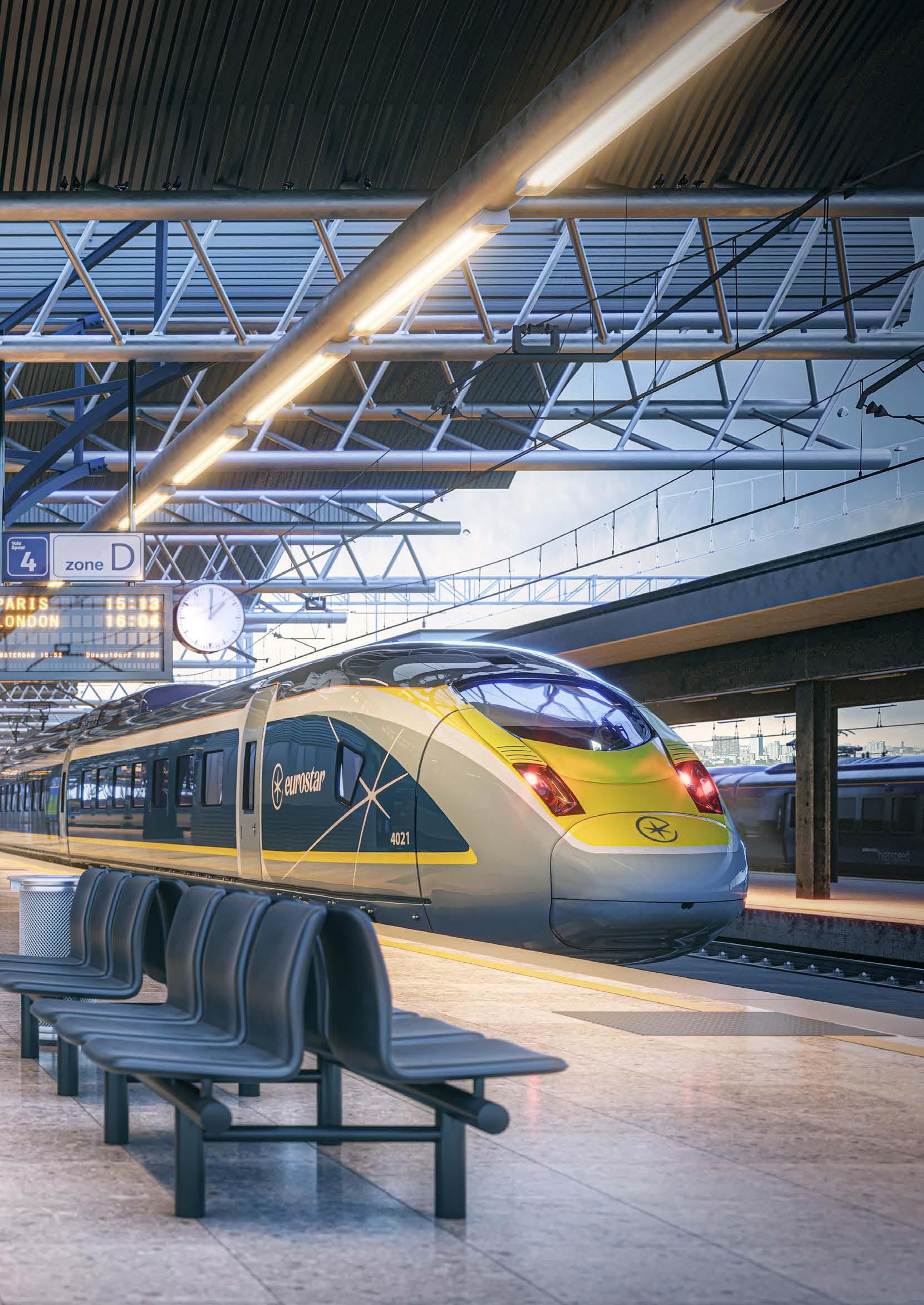Eurostar: More Than a Train, A Force Shaping Europe
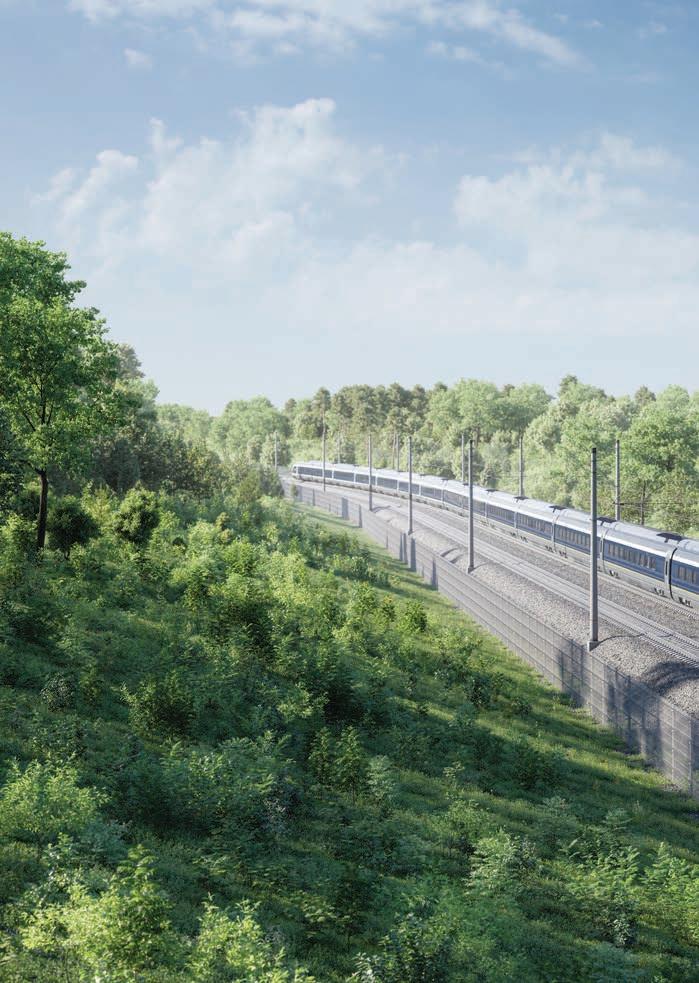
Project directed by Jamie Waite
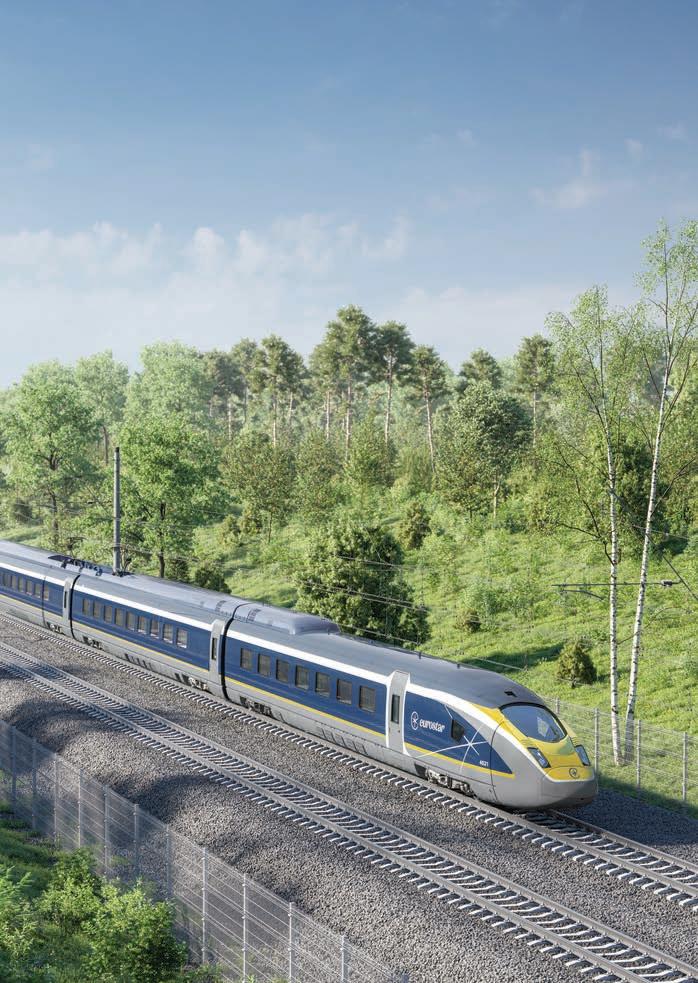
There are few travel brands as iconic as Eurostar. Since its first journey through the Channel Tunnel, Eurostar has represented more than transport. It has been a bridge that links people, businesses, and cultures across borders with a speed and ease that has redefined the very concept of international travel.
In 2024, the company broke records with 19.5 million passengers, and during the Paris Olympics it served as the principal artery bringing athletes, supporters, and visitors directly into the heart of the city. For Paris, London, Brussels, Amsterdam, and beyond, Eurostar is not simply moving people. It is moving economies.
To understand the scale of its impact, I spoke with Paul Brindley, B2B and Indirect Sales Director at Eurostar Group, who offered insight into how the business is navigating a world of post-Brexit realities, corporate sustainability agendas, and changing traveller expectations.
The Pulse of Paris
The London to Paris service is now the busiest international rail route in the world. In an era of strained airports and disrupted flights, this is no small achievement. The route carried 280,000 additional journeys in 2024, with the Olympics adding further momentum. Over the summer, 1.9 million passengers travelled on more than 900 trains, including seven national teams and 2,000 athletes.
For Paris’s hospitality and cultural institutions, the ripple effect has been transformative. Museums, galleries, and theatres have roared back to life. Eurostar even revived its 2-for-1 exhibition scheme to ensure visitors not only arrive in the French capital but also immerse themselves in its cultural heartbeat.
Brindley sums it up neatly: “It’s not just about getting people here. It’s about helping them experience the city to the fullest.”
Business Beyond Borders
For business, Eurostar is more than convenience. It is efficiency combined with responsibility. As Brindley puts it, “If you get a cab to Heathrow from home, that’s the same amount of CO₂ as taking Eurostar all the way from London to Paris.” Few statistics underline the environmental case more clearly.
The Eurostar for Business portal strengthens this offering by providing flexible ticketing, loyalty benefits, and lounge access. Lounges, once a niceto-have, are now decisive. Quiet, secure, and professional, they have become extensions of the office for corporate travellers.
Another shift is in traveller behaviour. The rise of “bleisure” has been dramatic. In 2024, only 1.7 percent of business trips lasted more than a day. By August 2025, that figure had risen to 12.8 percent. The business traveller of today is no longer someone who commutes in and out for meetings. They are extending their trips, spending more time in hotels, restaurants, and cultural venues.
The Gare du Nord Effect
Eurostar’s influence can also be seen in the areas surrounding Gare du Nord. While the company does not directly track real estate trends, the station’s position as a hub linking London, Brussels, Amsterdam, and Cologne has become a magnet for professionals and investors who value international connectivity.
And with 35 percent of seats on the London to Paris service sold below €65, Eurostar manages to combine

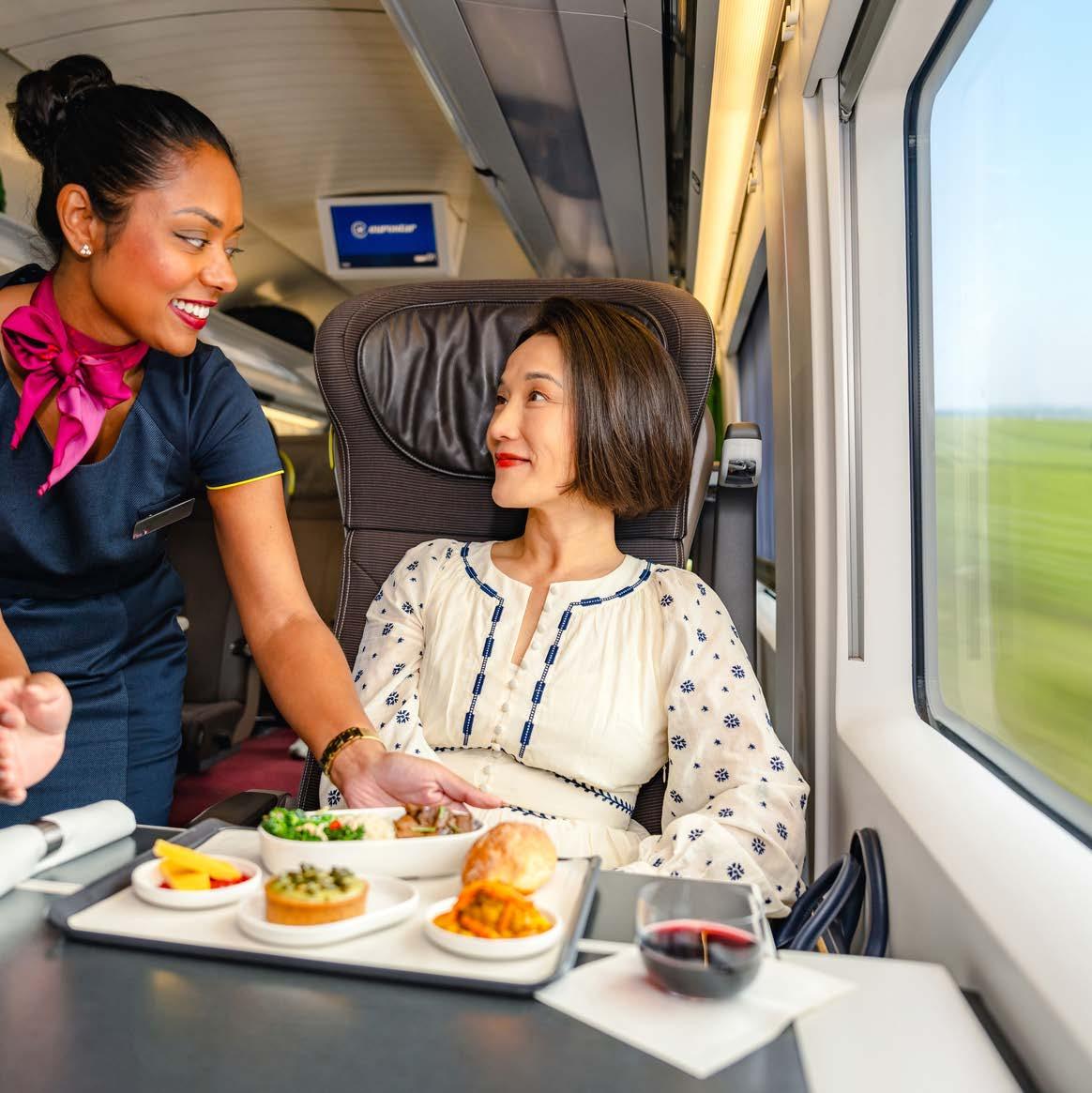
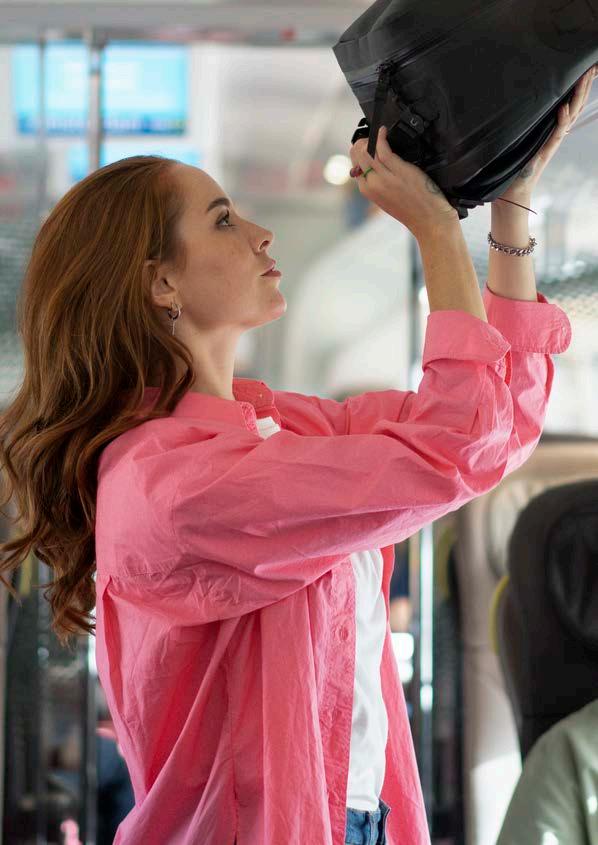
Paul Brindley
Paul is B2B and Indirect Sales Director at Eurostar Group. Eurostar is the high-speed railcompany connecting 5 key Northern European markets, transporting 19m business andleisure customers per year. There is a clear ambition to grow to 30m by 2030 withsustainability and modal shift as a key objective, through route enhancement andconnections to rail and air.
Paul joined Eurostar in 2019 and has delivered a new sales and distribution strategy thatbecame the foundations for the Eurostar Group as part of the merger between Thalys andEurostar. As part of the new Eurostar Group implementation in 2023, Paul brought togetherthe Eurostar and Thalys sales teams into a single new organisation supporting over 300distribution partners as well as moving to them to the new inventory system andimplementing the new Eurostar brand through their channels.
Prior to Eurostar, Paul has a background in FMCG sales and marketing with Unilever, Marsand Energizer where he was passionate about brand and customer propositions. Morerecently Paul has held senior Commercial management positions in Travel Retail withHeathrow express, Heathrow Airport and Travelex where strong commercial performanceand change management was his key focus.
Paul is passionate about team performance both professionally and through rugby, havingcoached, mentored, refereed, and played for over 30yrs. In addition, Paul loves to embracea culturally diverse approach to the business world, having lived in UK, France, Switzerlandand Russia and travelled extensively across Australasia, Asia, Middle East and Americas.

accessibility with aspiration. It is both a practical travel solution and a premium experience.
A Sustainability Benchmark
In the drive to cut carbon, Eurostar has set a benchmark. Travelling by train on its core routes reduces emissions by 95 to 97 percent compared with flying. The impact adds up. On the UK to Netherlands route alone, more than 83,000 tonnes of CO₂ have been avoided in the past five years.
Corporate clients are a big part of this shift. In 2024, businesses reduced their carbon output by 25,581 tonnes by choosing Eurostar. By August 2025, a further 16,073 tonnes had already been saved.
Brindley is clear about the role of regulation. “These policies are both a challenge and an opportunity. They push us to be more ambitious, but they also create the space to grow. They encourage demand, unlock funding, and support investment in cleaner technology.”
It is this combination of customer demand and political support that is cementing Eurostar’s position as Europe’s leading low-carbon travel option.
The Cultural Artery
Paris’s role as a global hub for fashion, design, and culture is inseparable from Eurostar’s ability to deliver visitors directly into the city. Passenger demand peaks during Paris Fashion Week and Maison & Objet, reinforcing the capital’s standing as a world stage for creativity.
These visitors are more than attendees. They are high-spending travellers who support the city’s luxury hotels, Michelinstarred restaurants, and boutiques, fuelling the ecosystem that keeps Paris at the forefront of global culture.
Brexit and Beyond
Brexit created one of the most challenging operating environments Eurostar has ever faced. New customs and immigration requirements meant the company had to rethink its processes.
The solution has been heavy investment and careful planning. Border processing capacity in London, Paris, and Brussels has doubled, supported by €10 million in new kiosks and e-gates. Crucially, Eurostar has preserved its pre-departure border model, meaning passengers arrive in Europe ready to step off the train without delay.
Despite the added complexity, Eurostar has kept its promise of fast and seamless journeys, maintaining its position as the easiest way to cross the Channel.
Reinvention on Rails
Eurostar’s journey has always been one of reinvention. It began as an engineering marvel, became a tool for international business, and is now a leader in sustainable travel. Its role during the Paris Olympics was symbolic, but the dayto-day impact is greater still. It enables cross-border commerce, fuels tourism, reduces emissions, and keeps Europe’s cultural capitals connected.
Brindley leaves no doubt: “Eurostar is not just keeping passengers moving. It is shaping the future of European travel.”
For a company that has already redrawn the map of mobility, the next chapter promises to be just as transformative.
www.eurostar.com
